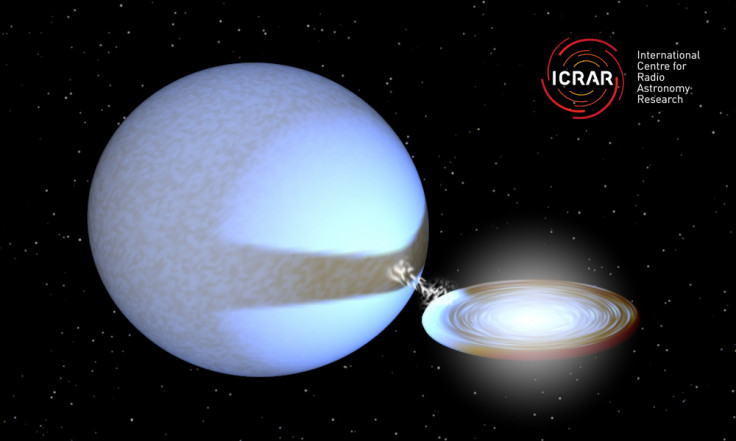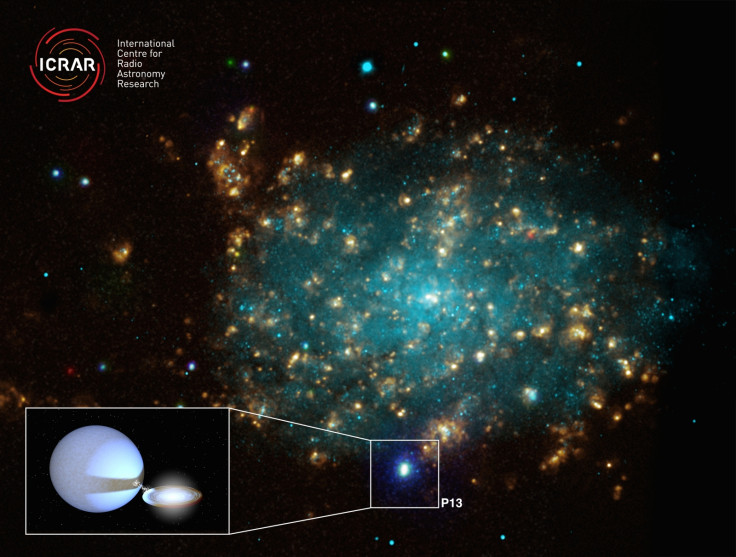Black Hole that Eats Equivalent of 100 Billion Billion Hot Dogs per Minute Discovered

A black hole that eats the equivalent of 100 billion billion hot dogs every minute has been discovered 12 million light years from Earth.
The black hole, P13, has been found to be consuming gas at a rate 10 times faster than had previously been thought possible.
Astronomers at the International Centre for Radio Astronomy Research found P13 on the outskirts of the galaxy NGC7793.
Published in the journal Nature, researchers noticed P13 was more luminous than other black holes – when gas falls towards a black hole it gets very hot and bright. Researchers found that P13 is about a million times brighter than the sun.
At first, astronomers thought it was just bigger than other black holes, astronomer Roberto Soria said: "It was generally believed the maximum speed at which a black hole could swallow gas and produce light was tightly determined by its size. So it made sense to assume that P13 was bigger than the ordinary, less bright black holes we see in our own galaxy, the Milky Way."

However, the team found P13 is on the small side, showing that black holes can consume more gas and produce more light than had been thought.
The supergiant star P13 rotates is 20 times heavier than our Sun and scientists notice one side of the star was always brighter than the other because it was illuminated by the black hole.
"This allowed us to measure the time it takes for the black hole and the donor star to rotate around each other, which is 64 days, and to model the velocity of the two objects and the shape of the orbit," Soria said. "From this, we worked out that the black hole must be less than 15 times the mass of our Sun."
He said P13 is a member of a group of black holes known as ultralumionus X-ray sources: "These are the champions of competitive gas eating in the Universe, capable of swallowing their donor star in less than a million years, which is a very short time on cosmic scales."
"As hotdog-eating legend Takeru Kobayashi famously showed us, size does not always matter in the world of competitive eating and even small black holes can sometimes eat gas at an exceptional rate."
© Copyright IBTimes 2025. All rights reserved.





















